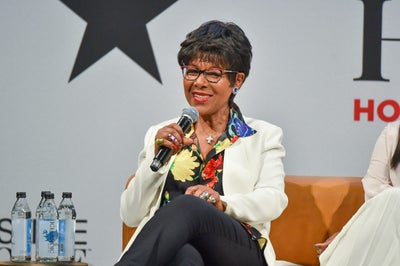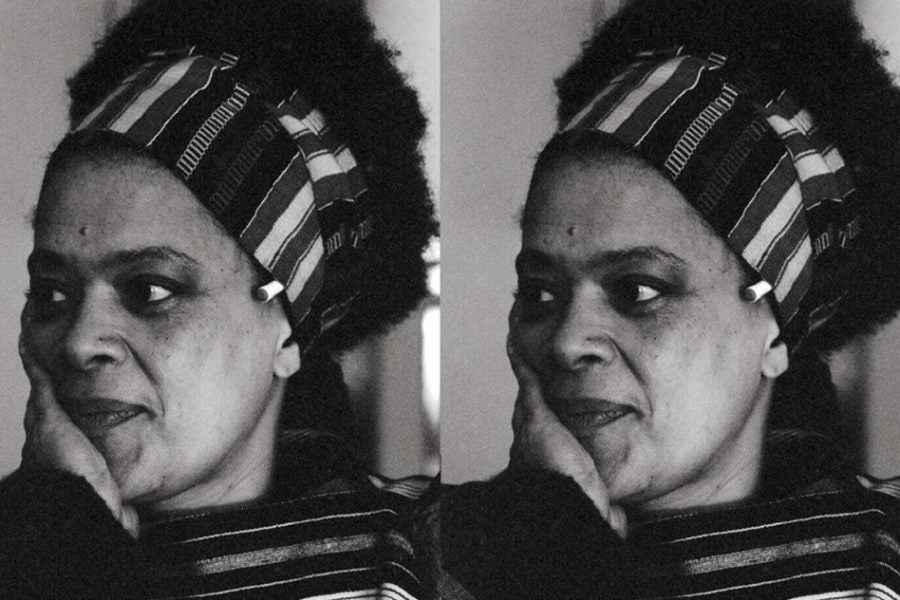
Euzhan Palcy once said: “With my camera, I try to heal the wounds created by history,” and for almost 50 years she has done just that. For the creation of seminal works such as Sugar Cane Alley, A Dry White Season, and Siméon, the esteemed director will receive an Honorary Oscar at this year’s Governors Awards on November 19 in Los Angeles.
“It’s something that I did not expect,” Palcy says of her most recent achievement. “It was fantastic and a big surprise. It really made my day when I found out that I would be awarded with an Honorary Oscar. It’s something that everyone dreams of all around the world, not just in America. It encourages you more because it means that your peers recognize your work. All awards are great, but an Academy Award sits above the rest.”
As with many great stories, this journey stems from humble beginnings. Living in Martinique during the 1960s, she fell in love with films as a youth. On Sundays, the 10-year-old Palcy would attend the movies for children in the afternoon, and tag along with her mother and father for the evening showings. “When [my parents] would put me to bed they would go out to have a good time at the movies,” she tells ESSENCE. “Then, I would put my clothes on and run to catch up with them. Because they didn’t like missing their films, they would just keep me with them. I did that a couple of times, and I was able to enjoy the other, more serious films.”
“I love movies – the bright, big screen and just the entire theater itself,” Palcy continues. “But very quickly I would become sad because I realized that there were no Black people on these screens, and I couldn’t understand why. So at a very young age I decided that I had to be the one to do that.”
Article continues after video.
Palcy stayed in Martinique for college, and eventually found work at a local television station. There, she wrote and directed the short film La Messagère, and began her career as a filmmaker. In 1975, she left for Paris to earn a master’s degree at the Sorbonne, a D.E.A. in Art and Archeology and a film degree from the prestigious Louis Lumière College. After creating the film adaptation of Joseph Zobel’s novel Black Shack Alley, she became acquainted with members of the French film community, and met François Truffaut, the man who would encourage her to put together her first feature, Sugar Cane Alley.
The highly celebrated Sugar Cane Alley was released in 1983, and exposed the West Indies’ culture to a worldwide audience. The movie went on to win the Cesár Award for Best First Film, making Palcy the first Black director – male or female – to receive it. Ultimately, it won more than 17 international awards, including the Venice Film Festival Silver Lion, as well as the Coppa Volpi for Darling Legitimus’ breathtaking performance. The acclaim of Euzhan’s first film was unexpected, to say the least. Putting together Sugar Cane Alley was a task in itself, so for the University of Paris graduate, its many accolades were well deserved.
“I never saw that,” Palcy speaks to the success of the film. “I fought so hard to get that movie made because so many people didn’t want to make it. Also, there were not that many female directors in France. But I wanted to do it for my people, and for myself. I fell in love with the book [Sugar Cane Alley], and I said: ‘I don’t see why the film wouldn’t work,’ because I knew that people would understand it. But I never thought that the movie would be such a huge success internationally, and garner so many awards.”
The success of Sugar Cane Alley laid the foundation for arguably Euzhan’s most important work, 1989’s A Dry White Season. The courageous director risked her life by traveling to South Africa during a dangerous time in order to give viewers a painfully accurate account of apartheid. With the completion of this project, she again broke barriers by becoming the first black female director produced by a major Hollywood studio.
Both Palcy and MGM felt that A Dry White Season was a story that needed to be told. Due to the success of her previous release, the anti-apartheid narrative starring the reclusive Marlon Brando wasn’t hard to have greenlit. The pressure of survival however, weighed heavily during the entire process of recording.

“MGM gave me everything that I wanted, and they let me make the movie that I wanted to make,” states Euzhan. “Everything I asked for, my producer would have to fight for that – I did not have to fight for that. The project was unique, and they knew the value of that project, and they understood why I was doing it.”
“They realized that I was a young black woman willing to put her life at risk,” adds the revered producer. “Because if you remember, Mandela was still in jail, and the South African police were killing people like flies; but that would not stop me. The studio was very aware of that, and they protected me, because at that time anything could happen.”
In the years that followed, Palcy would go on to direct the musical Siméon; the trilogy Aimé Césaire: A Voice For History, Disney’s Ruby Bridges, The Killing Yard, The Journey of the Dissidents, and The Brides of Bourbon Island. These films and documentaries have had an undeniable impact in highlighting the major economic and social issues that have plagued communities of color globally. For her efforts, Euzhan has landed on several lists of influence, and earned countless awards; most notably her Honorary Oscar, which she is slated to receive later this month.
As far as legacy goes, Palcy has undoubtedly left her mark both as filmmaker, as well as a humanitarian. But how does she want to be remembered by her peers and supporters? “I hope that my work gives people the desire to make films,” the director responds.
“I would like people to make great movies, and to help them realize that dreams aren’t impossible,” she continues. “You will sweat, you will cry, you will get tired, but in the end it’s worth it. Never give up.”







